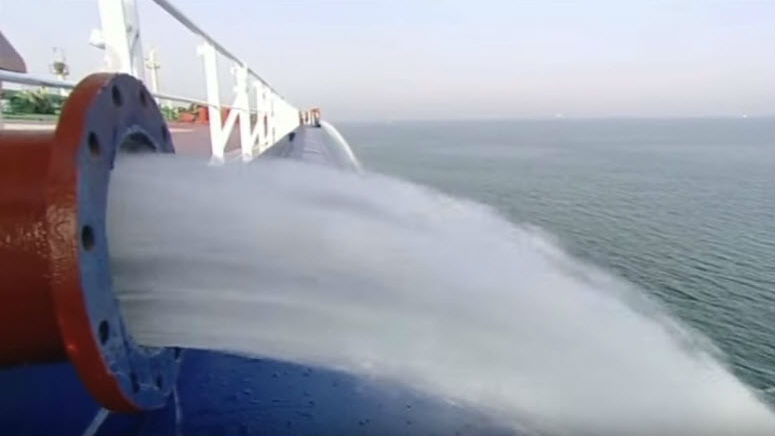Ballast Water: More Support for MPN Method

The U.S. Coast Guard’s December 14 decision to reject the most probably number (MPN) method for determining the efficacy of ballast water treatment systems has far reaching implications for equipment manufacturers and shipowners. Most recently, Trojan Marinex has submitted an appeal, and the Chamber of Shipping of America has issued a letter of support for the MPN method.
In January, ballast water treatment system manufacturer DESMI Ocean Guard also launched an appeal.
The MPN method evaluates the ability of an organism to reproduce and hence its ability to colonize a new environment. As such, it does not provide a result equivalent to that of the Coast Guard’s preferred method - vital staining.
DNV GL is of the position that the MPN method is the most relevant method and is a reliable way of evaluating the performance of UV technologies. That method has been validated to a greater extent than most of the methods described in the Environmental Technology Verification (ETV) Protocol (prescriptive guidance incorporated by reference to U.S. regulation), and UV technologies are commonly accepted in other water treatment industries.
Disinfecting water while ensuring acute kill of the organisms (instead of the ability to reproduce) will require a much more conservative dosage, implying higher power consumption (three to five times) by the UV lamps compared to most systems designed today, says DNV GL.
The Chamber of Shipping of America letter, published on February 12, states that the Coast Guard decision would prevent shipping companies, including those that are members of the Chamber of Shipping of America, from utilizing one of the most environmentally friendly and practical ballast water management systems developed to-date.
“This action, if affirmed by senior USCG officials, would have significant adverse economic impacts on the entire shipping industry and adverse economic and environmental impacts throughout the world… It appears that the USCG is attempting to impose a regulatory restriction on ballast water management system type approvals that goes beyond the requirements utilized by other member nations of the IMO.
“It is our understanding that this preliminary decision also goes beyond the requirements and intent of the Nonindigenous Aquatic Nuisance Prevention and Control Act, as amended by the National Invasive Species Act, to prevent and control infestations of nonindigenous aquatic species. The USCG’s preliminary rejection of the MPN method prevents U.S. type approval of UV technology-based ballast water management systems that render organisms non-reproductive, and therefore unable to colonize, because the efficacy of such systems is determined by using the MPN method.
“This preliminary rejection of the MPN method appears arbitrary and contrary to practice within most, if not all, other IMO member nations, and is even contrary to other use of the MPN method within the U.S.”
The letter is available in full here.
